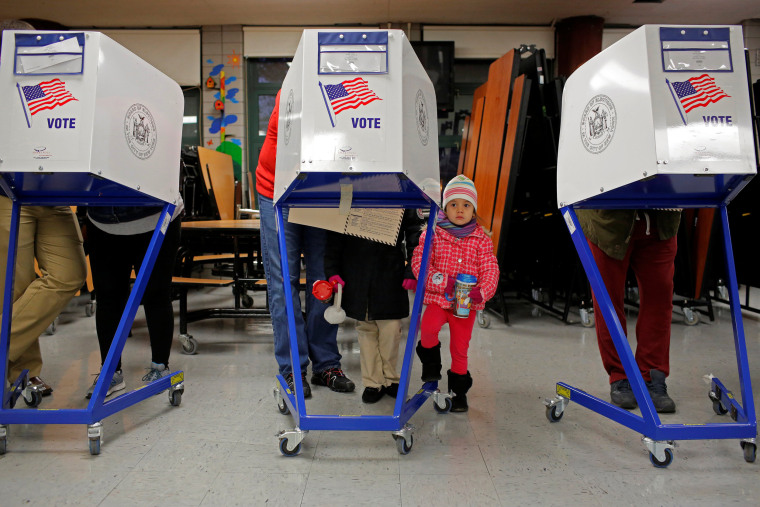Hours after abruptly shutting down his controversial election integrity commission, President Donald Trump accused states of covering for illegal voters and again alleged without evidence that widespread voter fraud exists.
“Many mostly Democrat States refused to hand over data from the 2016 Election to the Commission On Voter Fraud. They fought hard that the Commission not see their records or methods because they know that many people are voting illegally. System is rigged, must go to Voter I.D.,” the president tweeted early Thursday morning.
But there is no evidence for any Trump's latest claims.
There is still no corroboration of large-scale voter fraud, nor proof that millions of illegal voters cast ballots in the 2016 election as Trump has previously claimed. (Trump lost the popular vote by 2.8 million votes.)
Fraud occurs only in rare, isolated instances, according to experts. Justin Levitt, a former Justice Department official who is now a professor at Loyola Law School in Los Angeles, reviewed one billion votes. He found just 31 credible cases of voter fraud.
Many states protested the commission's data request because it included sensitive identifying information, like Social Security numbers, and cited state privacy laws that barred them from complying. There's no evidence that states were trying to hide illegal voters, as Trump claimed in his tweet.
They weren’t all blue states, either: Nearly half those that fully refused to comply voted for Trump in the last presidential election. Consider the response from one deep-red state: In Mississippi, the secretary of state, Delbert Hosemann, a Republican, told the commission to “go jump in the Gulf of Mexico.”
By the time litigation halted data requests, 23 states had refused to comply with the panel's request, according to a Reuters roundup of state reactions. Trump won 10 of those states in 2016: Arizona, Kentucky, South Dakota, Wyoming, Tennessee, North Dakota, South Carolina, Louisiana, Pennsylvania, and Mississippi.
In a second tweet Thursday, Trump pushed for voter ID requirements.
“As Americans, you need identification, sometimes in a very strong and accurate form, for almost everything you do.....except when it comes to the most important thing, VOTING for the people that run your country. Push hard for Voter Identification!” Trump said.
But the issue is more complicated that Trump's tweet suggests. Voting rights advocates argue that the use of photo ID elsewhere in society is beside the point — and that the strict voter ID laws most often championed in conservative-led states lead to disenfranchisement. Notably, lower-income Americans, the elderly and minorities are less likely to have photo ID.
“Voting is a fundamental right, and extreme photo ID requirements do not make our elections more secure. They just put barriers in front of the ballot box for eligible Americans,” said Myrna Pérez, an elections and voting rights expert at the Brennan Center for Justice. “These very strict photo ID laws only combat one specific kind of voter fraud that is vanishingly rare.”
When Missouri’s secretary of state, Jay Ashcroft, a Republican, championed a voter ID law last summer, he held up a 2010 incident of fraud that had potentially swung an incredibly close election. But he failed to mention that the new law he was championing wouldn't have stopped it.
